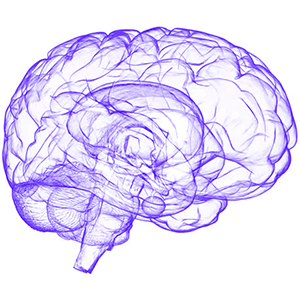 Sometimes talking to others about your child’s epilepsy can be difficult. You may be concerned about what people will think or say, but it is normal to have these concerns. It is also normal to be concerned that other children, parents, or teachers will treat your child differently or that there may be fear and misunderstanding about epilepsy and seizures. It is important to remember that by talking about epilepsy, you are spreading awareness and demonstrating that children, adolescents, and young adults with epilepsy can lead full, active lives.
Sometimes talking to others about your child’s epilepsy can be difficult. You may be concerned about what people will think or say, but it is normal to have these concerns. It is also normal to be concerned that other children, parents, or teachers will treat your child differently or that there may be fear and misunderstanding about epilepsy and seizures. It is important to remember that by talking about epilepsy, you are spreading awareness and demonstrating that children, adolescents, and young adults with epilepsy can lead full, active lives.
How should I tell someone that my child has epilepsy?
It’s important to remember that epilepsy doesn’t define your child. Explaining epilepsy to others who do not know a lot about epilepsy may be frustrating and tiring at times, but it is important to educate others around your child. When you do discuss their diagnosis, be clear and honest, and state the facts. You have the ability to share an important message – people with epilepsy deserve respect, understanding, and can lead full, active lives. Remember, you are your child’s best advocate!
How should I explain my child’s epilepsy diagnosis to them?
When talking to your child about their epilepsy diagnosis, it’s important to be open, honest, and receptive to their fears and concerns. Stay optimistic and use age appropriate language and explanations. It is important to encourage them to be curious and ask questions about their diagnosis, as this is a learning process for them as well. If you do not know the answer to the question, either look it up together or write it down to have for their next visit with their health care provider (HCP). This will help your child become more involved in their own care, setting them up for success as they grow.
My child is getting older. How can I help them understand their diagnosis?
As your child gets older (starting at 12 years old), it will be important for them to understand their epilepsy diagnosis and how to explain it to others (friends, school staff, coaches, etc.). It’s important to continually reinforce an open dialogue and encourage their independence as they enter adolescence and young adulthood:
- Start with helping them understand their seizure types and triggers, medications, and treatments.
- Explain why it’s important to talk about epilepsy and why educating others will help reduce fear and misunderstanding.
- Let them know the importance for others to know what to do if they have a seizure. Share and explain their seizure action plan.
- Share “conversation starter” tips to initiate conversations with their friends.
- Help them understand what kind of questions they may be asked and how they could answer them.
Our health guides are developed through a systematic, rigorous process to ensure accuracy, reliability, and trustworthiness. Written and reviewed by experienced healthcare clinicians from Boston Children's Hospital, a Harvard Medical School teaching hospital and consistently ranked as a top hospital by Newsweek and U.S. News & World Report, these guides combine clinical expertise, specialized knowledge, and evidence-based medicine. We also incorporate research and best practices from authoritative sources such as the CDC, NIH, PubMed, top medical journals, and UpToDate.com. Clinical specialists and subject matter experts review and edit each guide, reinforcing our commitment to high-quality, factual, scientifically accurate health information for young people.